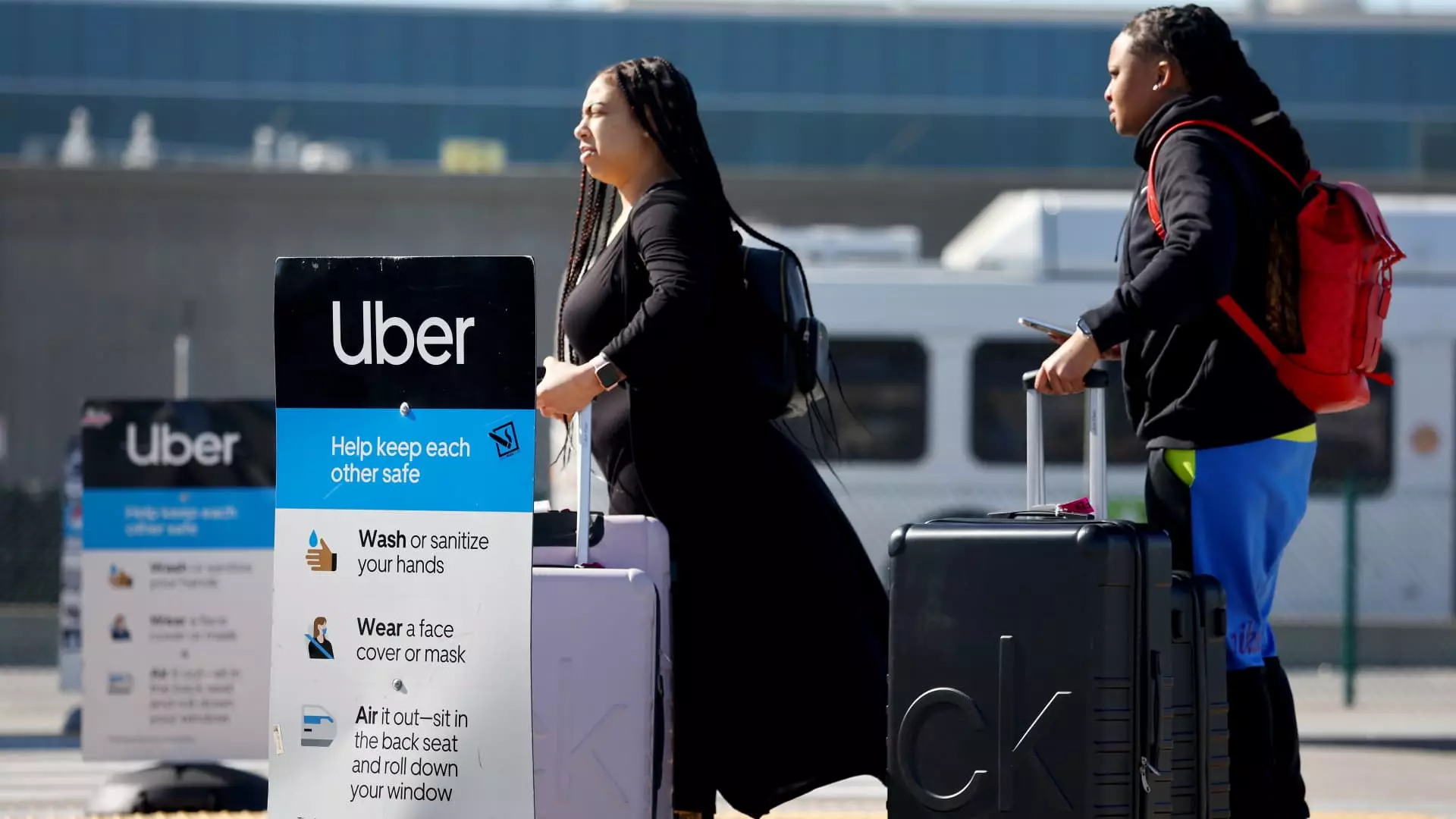In a significant shift within the travel and transportation sectors, Delta Air Lines has officially partnered with Uber, phasing out its previous collaboration with Lyft. This strategic decision, unveiled earlier this week, aims to enhance the travel experience for millions of Delta’s SkyMiles loyalty program members. With both companies focusing on optimizing customer convenience and expanding loyalty rewards, this partnership offers fresh opportunities for both Delta and Uber’s sprawling customer bases.
The structure of this new partnership offers exciting benefits for frequent flyers. Delta SkyMiles members will find that for every dollar spent on UberX rides to the airport, they can earn one SkyMile, making travel more rewarding than ever. Premium options, such as Uber Comfort and Uber Black, yield two miles per dollar, while those opting for Uber Reserve trips will earn three miles per dollar. This tiered earning system significantly enhances the value for frequent travelers who often turn to ride-sharing services for their airport commutes.
Additionally, the partnership extends to Uber Eats, where customers can earn one mile for every dollar spent on orders beyond $40 from various restaurants and grocery stores. This dual capability to earn SkyMiles while dining adds a layer of convenience and value, aligning perfectly with the lifestyle of frequent travelers who often juggle both business and leisure commitments.
While Delta’s decision to switch from Lyft to Uber raises questions, it seems grounded in clear strategic considerations. Notably, the airline did not disclose the motives behind this transition but hinted at the necessity of alliances that reflect contemporary market trends. Delta’s credit card partnership with American Express may have also played a pivotal role, as AmEx offers cardholders benefits on Uber rides and deliveries. This integration further solidifies the synergy between Delta and Uber, ultimately providing incremental value to members of their respective loyalty programs.
Lyft may have previously transformed customer travel experiences efficiently but appears to be pivoting in a different direction, partnering with brands that foster their own customer experience. With Delta’s partnership acknowledging the growth and usage patterns of its members, it becomes clear that both companies are strategically positioning themselves in a competitive marketplace that thrives on consumer loyalty and convenience.
Analyzing the broader context of travel and transportation reveals digital platforms reshaping traditional customer reward systems. Delta is one of several airlines that have expanded partnerships within loyalty programs, recognizing the immense profits generated from them. With numerous industry players like Starbucks, Hertz, and Ticketmaster also partnering with Delta, the incentive for customer loyalty grows stronger.
Meanwhile, beneath the surface rivalry between Uber and Lyft lies a dynamic market where user engagement is soaring. Lyft reported 24.4 million active riders, while Uber boasted a staggering 161 million monthly active users across its platforms by the end of September. These figures indicate a clear trend favoring the latter—one that Delta has evidently capitalized upon to accelerate its customer engagement initiatives.
The announcement of this partnership was made at the CES tech show in Las Vegas, a fitting venue for technological innovation. Alongside the unveiling of their collaboration, Delta also hinted at a future where technology enhances travel experiences through the introduction of AI-powered assistants in its app, coupled with in-flight entertainment system upgrades.
As Delta Air Lines and Uber embark on this new chapter of collaboration, customers stand to benefit not only from practical incentives but also from a seamless traveling experience defined by efficiency and convenience. This venture symbolizes a proactive approach to modern travel challenges, capitalizing on technological advancements that promise to redefine the future of airline loyalty programs.
As Delta Air Lines aligns itself with Uber, both companies are poised to transform customer engagement through innovative loyalty rewards, bridging the gap between air travel and ride-hailing services for a seamless user experience.

